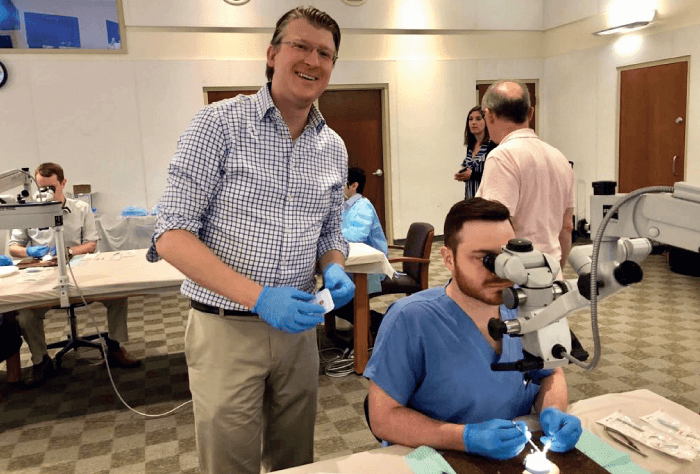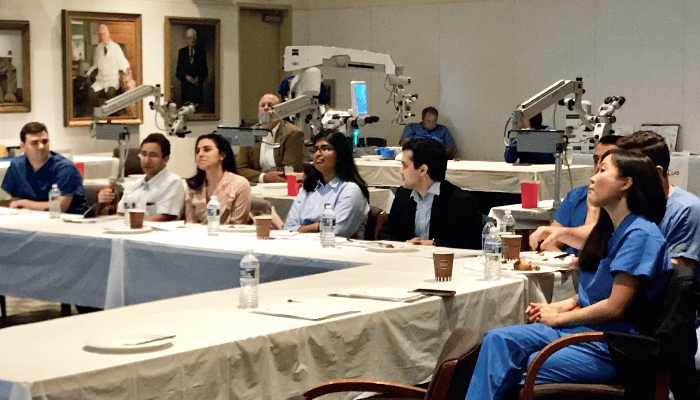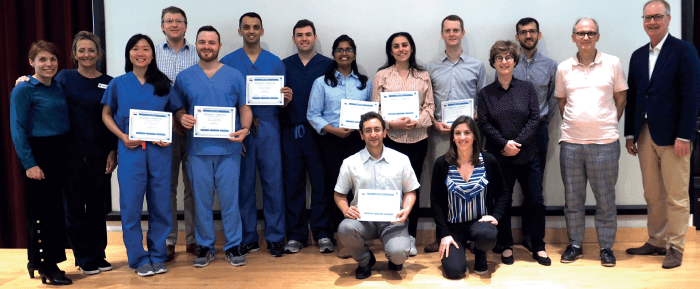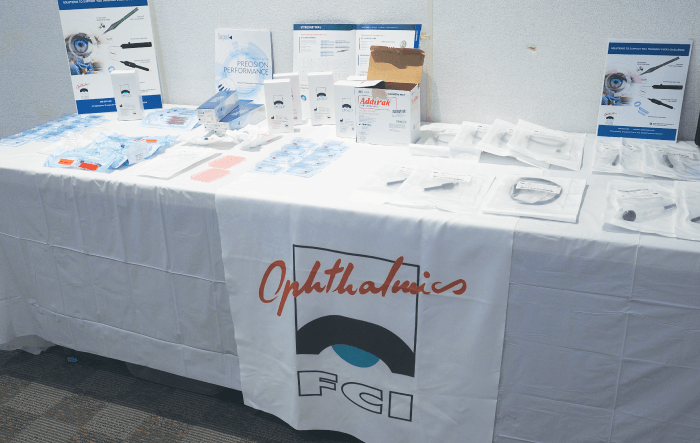
Michael A. Klufas is a vitreoretinal surgeon based at a retina practice (Mid Atlantic Retina with locations in Pennsylvania, New Jersey and Delaware), which is also the Wills Eye Hospital Retina Service. Klufas treats patients of all ages, from newborns with retinopathy of prematurity (ROP) in the NICU to elderly patients with AMD.
The practice is unique thanks to its relationship with Wills Eye Hospital in Philadelphia, PA, where Mid Atlantic Retina surgeons are the main preceptors for a sought-after vitreoretinal surgical training fellowship. Klufas says, “All of our practice members take pride in teaching fellows in the operating room. We boast a wide range of surgeons: from those straight out of fellowship, to very experienced surgeons who have practiced for over 25 years. And this gives our fellows a broad exposure to both well-established and brand-new surgical techniques.”
As Klufas explains, retina surgery is extremely complex, which is why trainees pursue a dedicated fellowship. After completing the fellowship, the learning process is far from over; indeed, it is vital to continually refresh and update knowledge within what is a highly innovative field. Klufas describes what this process looks like at Wills Eye: “There are many educational conferences at Wills Eye Hospital, including a monthly retina surgery conference, which is well attended by our faculty and trainees. We broadcast this conference online in cooperation with ASRS, which allows doctors from around the world to tune in. Furthermore, many of our physicians participate in domestic and international symposia. Many of the Wills Eye Retina Service members, including myself, will be participating in an ASRS instructional course on retina surgery in Seattle in July 2020.”
As part of the educational program in retinal surgery, Klufas led an FCI University event titled Vitreoretinal Surgery and Scleral Buckling in June 2019. Why did he decide to get involved in this undertaking? “I was fortunate to be introduced to Thierry Fetick, CEO of FCI Ophthalmics, who told me about some of the educational courses the company had sponsored in Europe for vitreoretinal and oculoplastic surgeons. I was very excited to hear about this approach, and soon we hosted a conference call with Fetick and the surgeons who ran the course in Europe. I was happy to take on the challenge of starting a new hands-on course like this in the USA, and we were able to organize the inaugural course at Wills Eye Hospital last summer.”
Klufas says the choice of topic for the course was important. “Considering the retina surgery course was for ophthalmology residents and accepted vitreoretinal fellows, our plan was to focus on scleral buckling: the principal techniques, methodology, and a wet lab, with a goal of reinforcing the placement of scleral sutures during the scleral buckling procedure. It can be overwhelming for trainees to focus on too many topics, and maintaining a focus on scleral buckling helped to keep the course focused.”

So, how does Klufas remember his own scleral buckling training? “I was trained by masters of scleral buckling at the Jules Stein Eye Institute: Allan “Buzz” Kreiger, Steven D. Schwartz, and Jean-Pierre “JP” Hubschman,” he says. “All three physicians had a unique way of buckling, thanks to their training: Buzz trained with Taylor Smith who was the main competitor to Charles Schepens – often cited as perfecting the scleral buckling process; Steve trained at Moorfields in London, UK; and JP previously practiced in Europe – and so he showed me some nice ‘European-style’ buckling techniques.” And Klufas is well aware of the impact of exposure to such unique knowledge and training. “I feel very fortunate to have the blood of these three surgeons in my veins, and it’s extremely valuable to have the opportunity to pass these important buckling techniques to fellows at Wills Eye Hospital and to other trainees in the USA – thanks to FCI University’s Vitreoretinal Surgery and Scleral Buckling course.”
Scleral buckling remains an important procedure to learn for vitreoretinal fellows and trainees, and Klufas believes attendees got a lot out of the primer on scleral buckling in preparation for their future fellowship training – especially with strict limits on number of attendees. “The ratio of four students to one faculty member meant that the wet lab experience wasn’t diluted; we were able to give our full attention to each participant,” he says.
The course was attended by 12 trainees from Wills Eye Hospital, Scheie Eye Institute, and Yale Eye Center. Klufas was thankful for FCI Ophthalmics’ role in organizing the event, and says that Chief Resident Michael Abendroth helped with many of the logistical challenges, such as bringing in porcine eyes for the wet lab, and getting microscopes delivered. He continues, “I also have to thank our visiting faculty Jean-Paul Berrod and Véronique Pagot-Mathis, who ran the course in France, and came to help with the US counterpart. I would love to host this type of course annually or every two years, depending on demand.”

Interestingly, Wills Eye Hospital has just opened a state-of-the-art ophthalmic surgery wet lab, which would make organizing and holding another edition of the course even easier. Considering the nationwide – and worldwide – trend towards vitrectomy, the unique focus on scleral buckling is invaluable, argues Klufas.
Is an industry partner, such as FCI Ophthalmics, an important piece of the puzzle when organizing educational courses and events? Klufas certainly thinks so. “FCI makes a full range of vitreoretinal surgery products like directional laser probes, backflush and instruments, including scleral buckling components. Sponsorship from the company for this type of course was ideal; FCI was able to provide many of the supplies we use for these procedures. Additionally, the trainees of today will be the attending surgeons and retina professors of tomorrow, and it is a great advantage for them to be using real tools, available today. Finally, FCI Ophthalmics’ parent company ZEISS has a multitude of retinal imaging products, microscopes, and even a dedicated vitrectomy system in Europe – VISALIS. And that means a relationship with FCI can lead to other collaborations in retinal imaging, surgery, or even surgical device development – all interesting aspects of a vitreoretinal surgeon’s practice.

